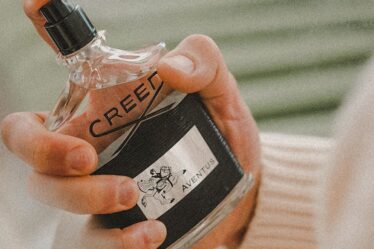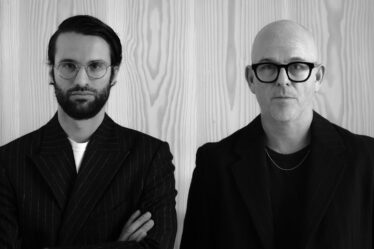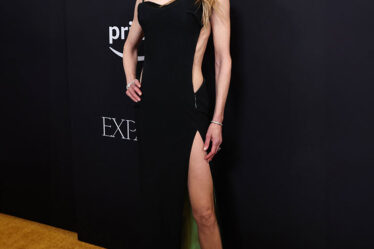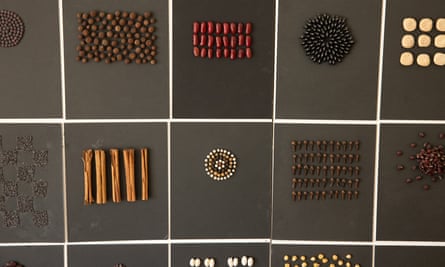
Nearly two decades ago, Anna Mathilda painstakingly stuck hundreds of seed samples and spices to framing offcuts for a university project. For years it was packed away, its decorative morsels becoming fodder for hungry mice. But recent rental security has given Mathilda a chance to revisit the 32-panel “specimen chest”, beginning some much needed repairs and putting it back on display.
During her final year as a fine arts major, Mathilda was musing on the aesthetics of bean seeds. Before long, she says, she was “raiding the pantry”, finding a new visual appreciation for the intricacies of common ingredients. She spent hours with tweezers and a glue stick arranging them in patterns.
“When you line up sesame seeds and put them all in the same direction they’re fascinating, whereas in honey chicken they’re just bog standard. It’s a real way of celebrating the ordinary,” Mathilda says.
It isn’t just the visuals that capture visitors’ imaginations. “Everyone seems to want to smell it too.”
While many of the specimens have lost their fragrance over time, Mathilda still gets a kick out of watching people identify ingredients. “The ‘a-ha’ moments when they realise what they’re looking at are like crack to me.”
No longer an aspiring artist, Mathilda now teaches permaculture. So the work reflects her life in a different way. It is an instruction in observation. “If people can value the diversity of the tiny things in the world”, she says, then hopefully they can “make connections to their place in the bigger world”.
On a more personal level, she says restoring the work has been a “nice tangible way to reconnect with the Anna I was when I made it”.
“At the time I was just playing around, trying to find connections between things that seemed unrelated”, Mathilda says, but a later in life diagnosis of neurodiversity probably explains her fascination with trying to find order in the chaos of her pantry.
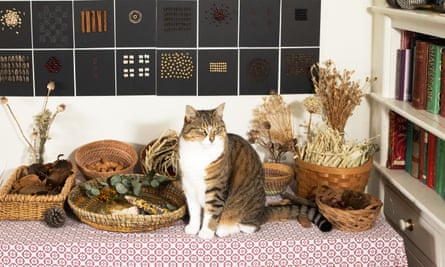
“I spent my whole life trying to find an order to something that doesn’t necessarily make sense to me: when you can systemise things, it can help you understand where everything fits and maybe where you fit.
“I’m much more emotionally in touch and all of that has come from tiny seeds of potential that have been allowed to grow.”

